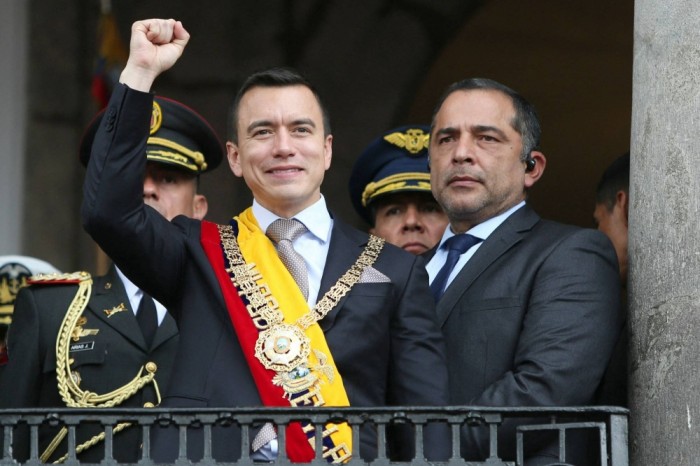Ecuadorian authorities have arrested five people following what officials described as an attempted assassination on President Daniel Noboa during ongoing nationwide unrest.
Noboa was unharmed in the attack, which came amid escalating protests over the government’s decision to scrap diesel subsidies.
According to the energy and environment minister, about 500 people hurled stones at the president’s convoy, damaging his vehicle, which also showed “signs of bullet damage.”
A video released by the president’s office and shared with the BBC captured the moment protesters pelted the car, revealing three small holes in one of its windows. The BBC has not independently confirmed whether bullets were fired.
Noboa’s office said the five detained individuals would face terrorism and attempted assassination charges.
The arrests took place as tensions between the government and the Confederation of Indigenous Nationalities of Ecuador (Conaie) continued to intensify. Conaie, which declared a nationwide strike to oppose the subsidy removal, claimed, “five of us have been arbitrarily detained.”
The protests, which have entered their third week, began after the government ended diesel subsidies. Conaie has spearheaded roadblocks and mass marches, saying the decision will worsen living conditions.
The government has defended its move, stating that cutting the subsidy will save $1.1 billion annually, funds it plans to redirect to support small farmers and the transport sector.
Last week, another attack targeted Noboa’s convoy as he travelled with senior diplomats from the UN, EU, Italy and the Vatican to deliver aid to affected areas.
Photos shared on his social media pages showed shattered windows and windscreens on vehicles in his delegation.
Authorities reported injuries among members of the armed forces during clashes, while Conaie said one person has died. The organisation has accused the state of arbitrary arrests and excessive force, while the government has branded the group’s actions as “criminal.”
Conaie, Ecuador’s largest indigenous movement, has a history of leading large-scale demonstrations that toppled three presidents between 1997 and 2005, placing it at the centre of the country’s most turbulent political moments.
